Since the beginning of Ayurvedic teachings, certain herbs and plants have been attributed a healing effect. They are used to treat illnesses and strengthen your health. You can find out about the effects and areas of application of the 10 most important medicinal plants in Ayurveda here.
Overview: You should know these 10 Ayurvedic herbs
Herbs and spices play an important role in Ayurveda and especially in the Ayurvedic diet. They bring your doshas into balance and can activate your body's self-healing powers.
Medicinal plants can promote your health and alleviate a wide range of ailments. The following ten herbs are the most important in Ayurvedic medicine and treatment:
- Amalaki: natural immune booster
- Gotukola: antimicrobial, antidepressant, antidiabetic and memory-enhancing effect; has a detoxifying effect
- Triphala: has a Dosha-balancing effect
- Neem: effective against pests and skin diseases
- AshwagandhaReduces stress and promotes longevity of the body
- Shatavaristrengthens the female reproductive tissue
- Brahmi: cooling effect; promotes memory performance
- Sariva: cleansing and regenerating effect
- Guduchi: positive effects on liver and immune system; helps to reduce stress
- Tulsi: stomach-strengthening, appetizing and diaphoretic properties. Can be used for colds and digestive complaints
You should discuss the exact dosage and use of the medicinal plants with your Ayurveda therapist. This way, the herbs can be ideally tailored to you and your needs.
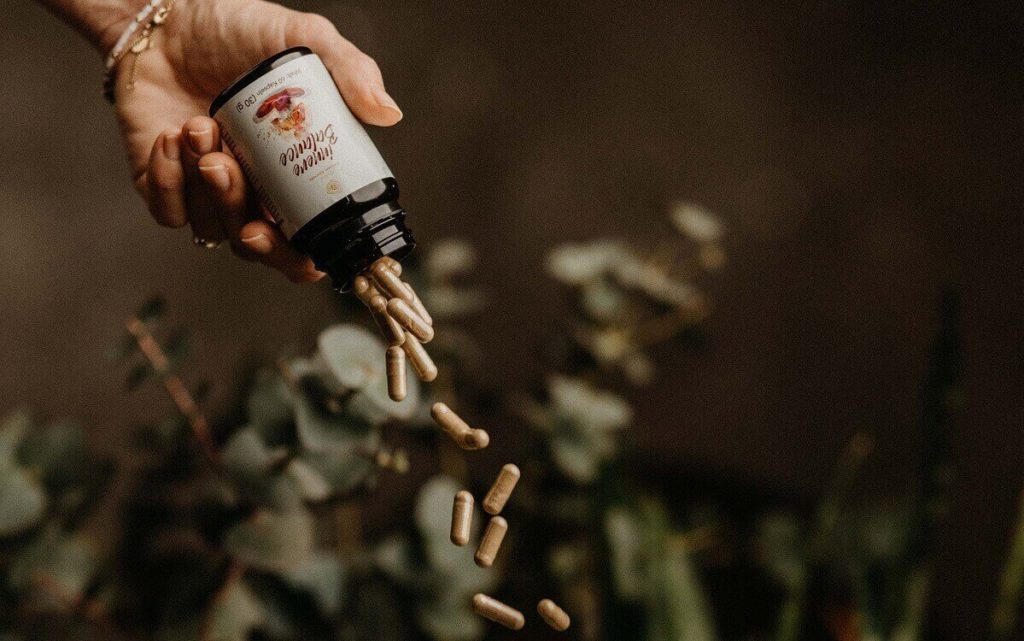

Discover high-quality nutritional supplements in our store now
For a balanced diet and more balance - discover our high-quality food supplements and supplements in the European Ayurveda® Shop now!
1st Amalaki
Amalaki is also known as amla berry or Indian gooseberry. It is a small, round, bitter fruit and originates from South and Southeast Asia. The benefits of amalaki include its rejuvenating effect and contributes to longevity in Ayurveda.
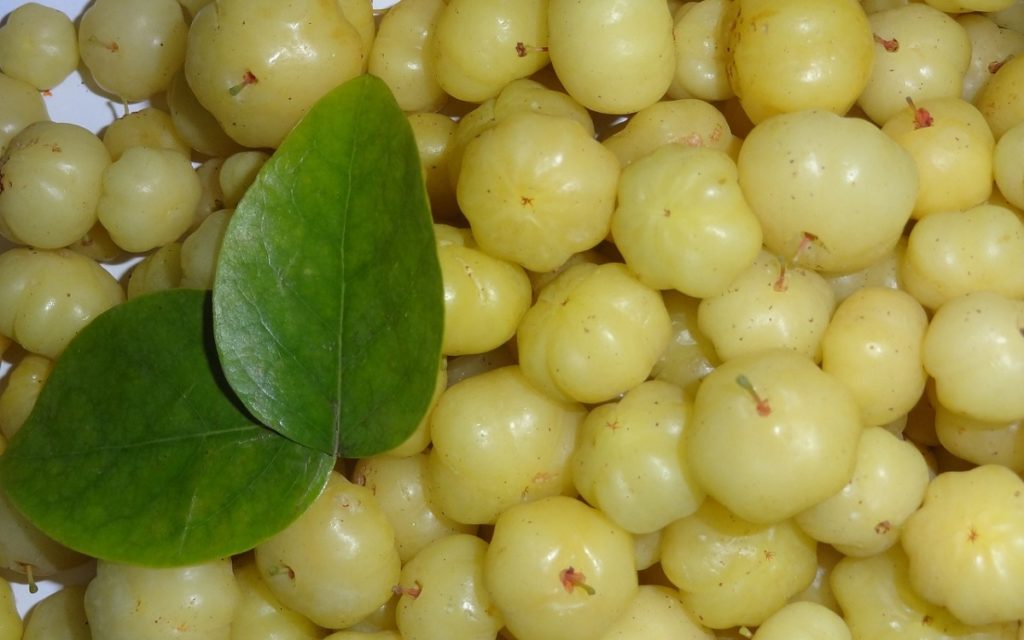

The medicinal plant has long been an important ingredient in Triphala, which is one of the most important Ayurvedic herbs and acts as a natural immune booster due to its high vitamin C content. Triphala is particularly suitable for balancing Pitta.
It also helps against diabetes, indigestion, inflammation, gastritis, coughs and sore throats. Amalaki is mainly available in powder or capsule form, but can also be taken as a juice.
2. gotukola
Also known as Indian Pennywort, Gotukola is used throughout Asia, especially in China. It is known for its antimicrobial, antidepressant, antidiabetic and memory-enhancing effects. It is not called the "leaf of longevity" for nothing.


Another benefit of gotukola is its detoxifying effect, which is particularly beneficial for the health of the liver and kidneys. It is therefore also used in detox cures. It can also strengthen your brain function and memory and reduce cognitive disorders. The herb also helps with sleep problems, anxiety and stress as well as in the treatment of depression.
Gotukola can also be used to treat wounds and reduce scars and stretch marks. The Indian medicinal plant is often consumed as a kind of porridge or soup. The leaves are crushed and taken as part of a meal, for example with rice or curry. In Western countries, it is mainly available in powder form or as a capsule.
3. triphala
Translated, triphala means "three-fruit" and is not, strictly speaking, a medicinal plant in its own right. Rather, it is a mixture of the dried fruits of Haritaki, Amalaki and Bibhitaki. Triphala helps you to balance your doshas and restore inner harmony.
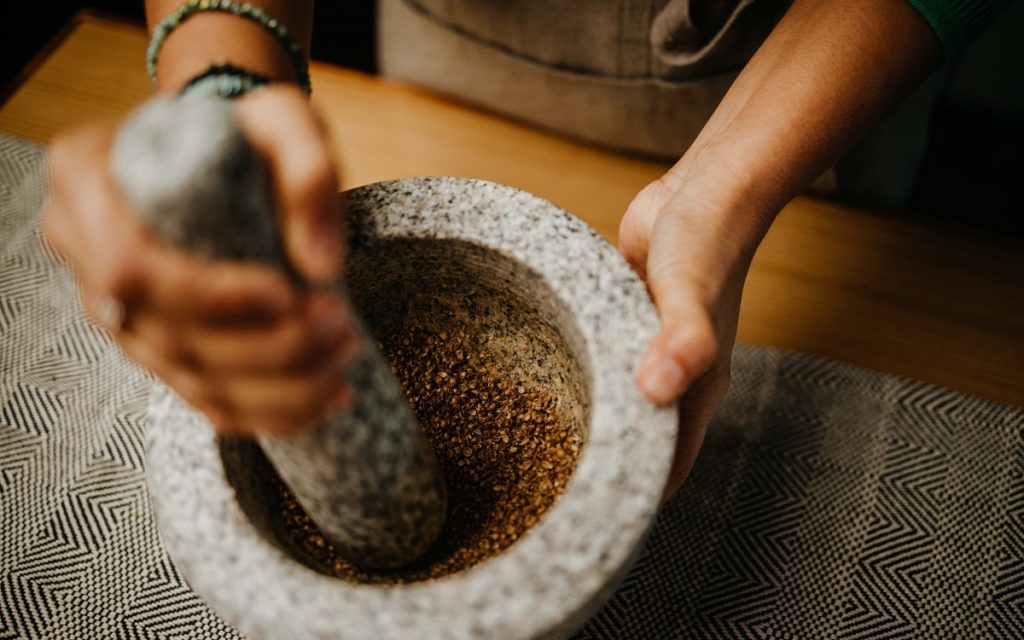

- Haritaki supports your digestion and helps with better absorption of nutrients. It also improves your memory function and has a detoxifying effect.
- Amalaki is considered a detox miracle and strengthens your immune system thanks to its high vitamin C content. The plant also has a detoxifying effect and helps to balance your doshas.
- Bibhitaki has a balancing effect on Pitta and Kapha in particular and has anti-inflammatory properties. The plant is also helpful for strengthening the metabolism.
Triphala can be taken both as a powder and as a capsule.
4. neem
Neem is also known as margosa and is a native tree in Sri Lanka with versatile properties. Its effective action against sand fleas, mosquitoes and ticks makes the plant popular. Neem is mainly used to control pests and in shampoos.
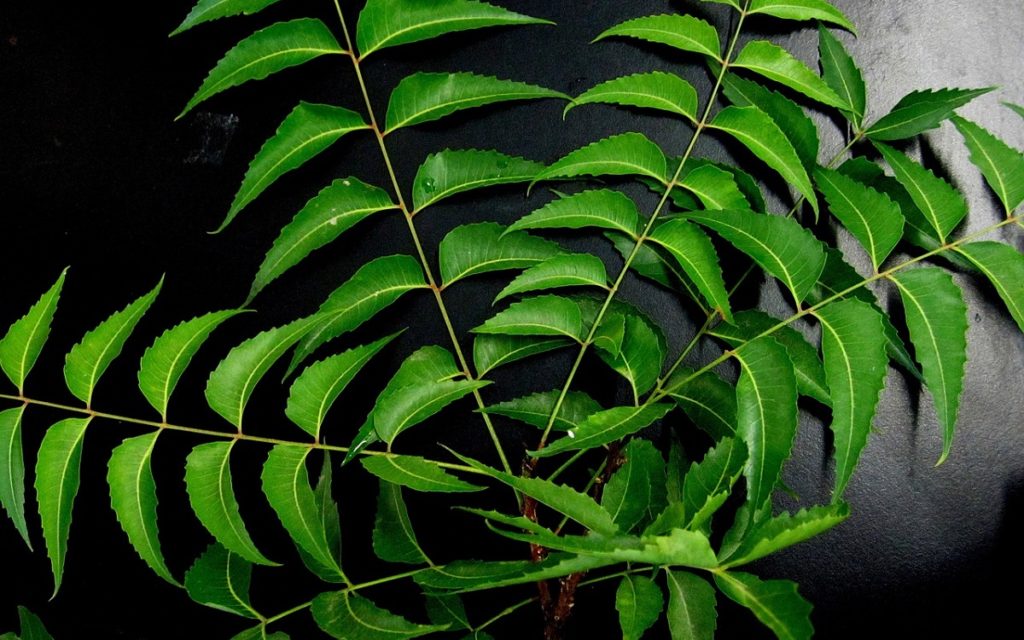

This Ayurvedic medicinal plant is also useful in the treatment of acne and can help to improve the appearance of the skin. It can also provide relief from rashes, infections, irritations, skin eczema and psoriasis . The plant is also used to prevent gastrointestinal complaints and fungal infections.
Neem can be found in toothpaste and mouthwash, but it is also available as an oil and can be applied directly to the skin. All components - namely bark, leaves and seeds - are used for medicinal purposes.
5. ashwagandha
The Indian sleeping berry or winter cherry ashwagandha grows as a small woody shrub. The roots and berries are mainly used in Ayurvedic medicine. This medicinal plant is used to strengthen your body.
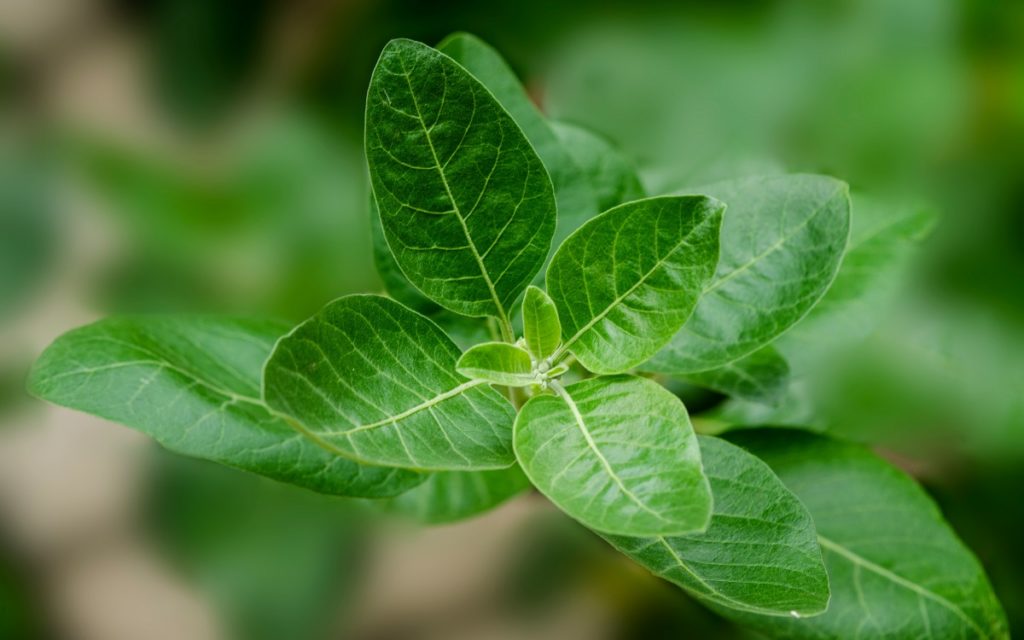

The benefits of ashwagandha include reducing stress and promoting the body's longevity. The plant is often used to combat stress and anxiety and to regulate blood sugar and cortisol levels.
It can also alleviate symptoms of depression and improve fertility. Ashwagandha is mainly taken as a powder, but is also available in capsule form.
6. shatavari
Shatavari is also known as wild Indian asparagus and is one of the most important Ayurvedic medicinal plants, especially for women. The plant is said to have nourishing, strengthening and soothing properties, which are obtained from the root tuber.
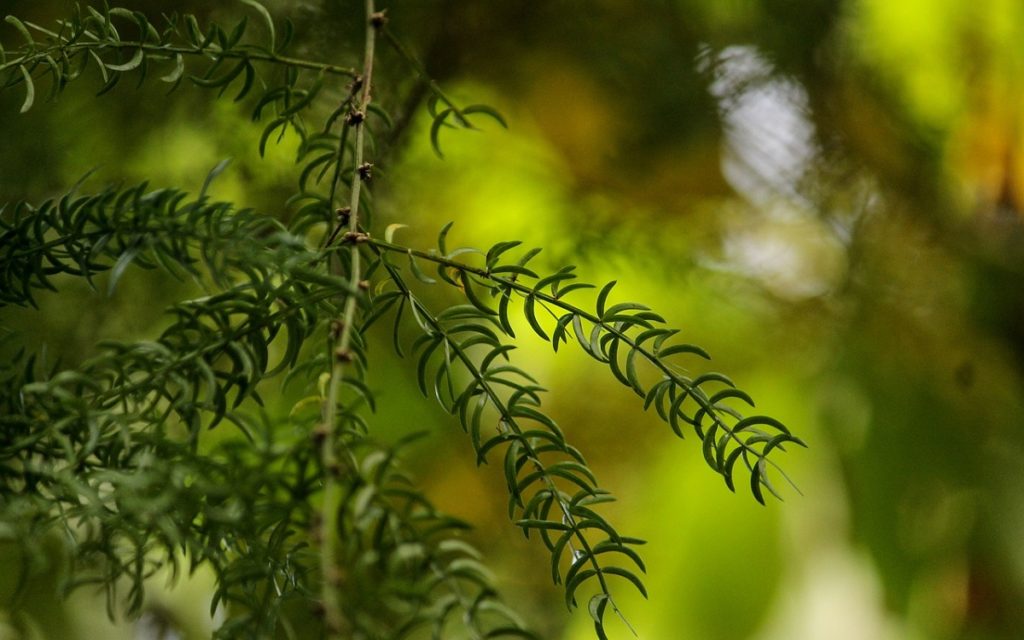

In addition to general strengthening, the plant is also considered to be particularly strengthening for the reproductive tissue. Shatavari can be taken as a powder or in capsule form.
7. brahmi
Brahmi is also known as little butterwort or memory herb. It is found in humid, tropical climates and produces light purple or white flowers. Its cooling effect on the body is particularly appreciated in India.
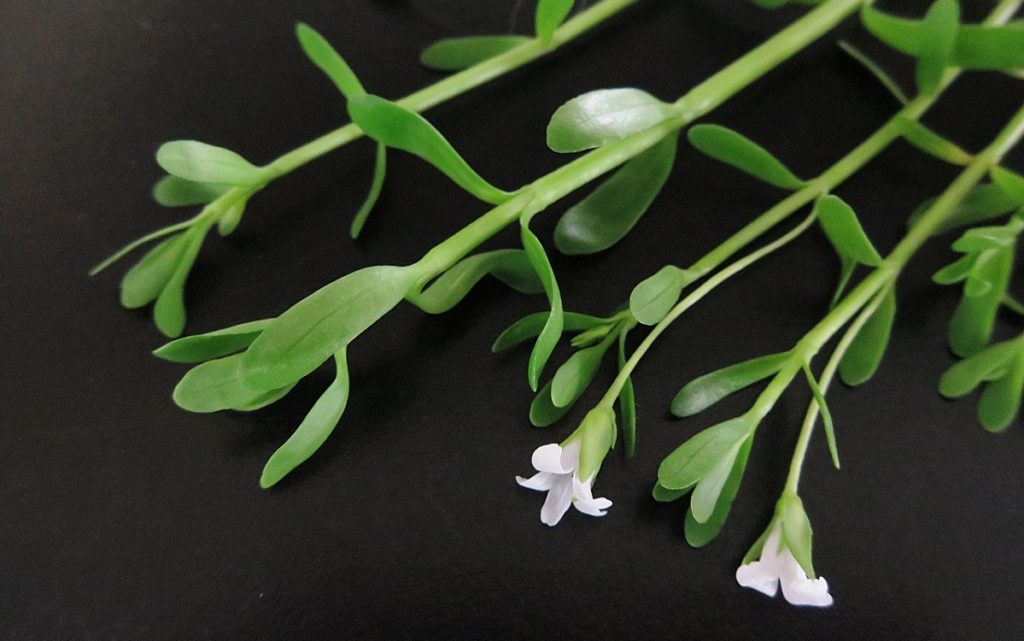

Brahmi can have a positive effect on your brain and strengthen both your long-term and short-term memory. It can also help to reduce stress and anxiety and strengthen the immune system.
The plant is also used to lower blood pressure and treat stomach ulcers. The entire plant is said to have healing powers and is used for medicinal purposes. The quality of Brahmi is best preserved by freeze-drying and can be taken as a powder, capsule or oil.
8th Sariva
Sariva is the dried root of the medicinal plant sarsaparilla (bindweed) and has a particularly cleansing and regenerating effect.


The plant's ability to purify the blood in particular makes it very popular. It can be used for skin complaints with itching, diabetes, diarrhea and digestive problems. You can take Sariva as a powder or as a chai tea with spices and milk.
9th Guduchi
Guduchi can be translated as "that which protects the body" and has cleansing and rejuvenating properties from an Ayurvedic perspective. Taking it can support your tissue and help you to age healthily.
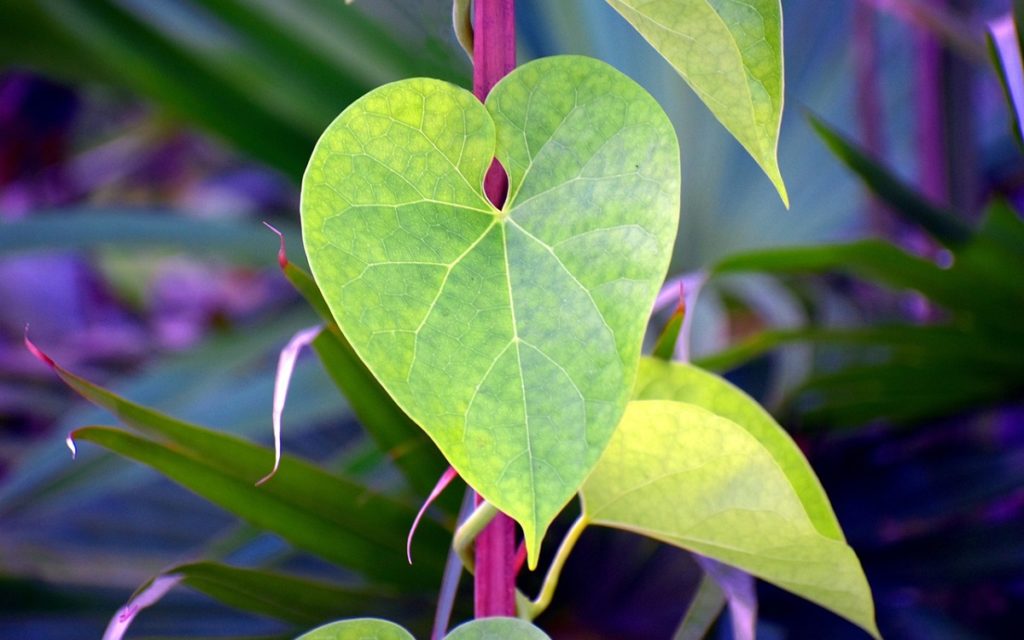

Guduchi also has a positive effect on your liver and immune system and can help to reduce stress. The Ayurvedic medicinal plant can also be helpful against fever.
It is also used to treat various skin diseases and liver and gall bladder disorders. Guduchi is also used as a nerve tonic and for diabetes mellitus. Guduchi can be taken in capsule or powder form.
10. tulsi
The "holy basil" is particularly widespread in India and is very popular due to its spiritual properties. Tulsi is grown in almost every Indian household and can be found as a sacred plant both in and around temples.
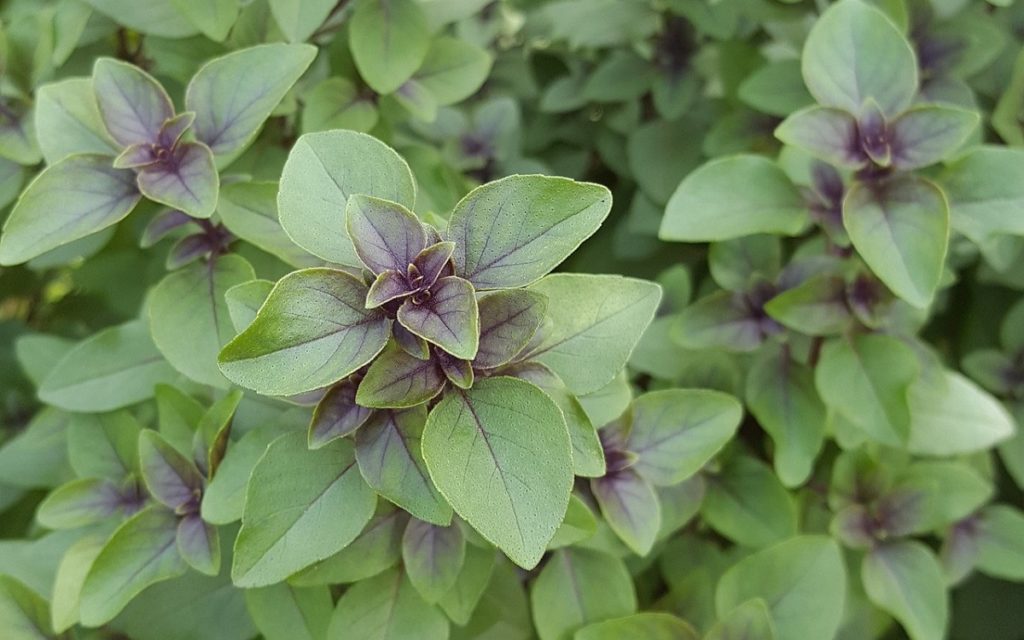

In Ayurveda, the plant is said to have stomach-strengthening, appetite-stimulating and diaphoretic properties. Tulsi leaves also support the function of your respiratory organs and are therefore often used as an Ayurvedic home remedy for colds.
It can also alleviate digestive, cardiac and urinary tract complaints. Tulsi can be taken as a pure herb, in pressed tablet form or as an essential oil.


Hot water & Ayurveda: why you should drink hot water
The positive effects of water on a person's physical well-being speak for themselves. You can find out why you should drink warm water according to Ayurveda here.




